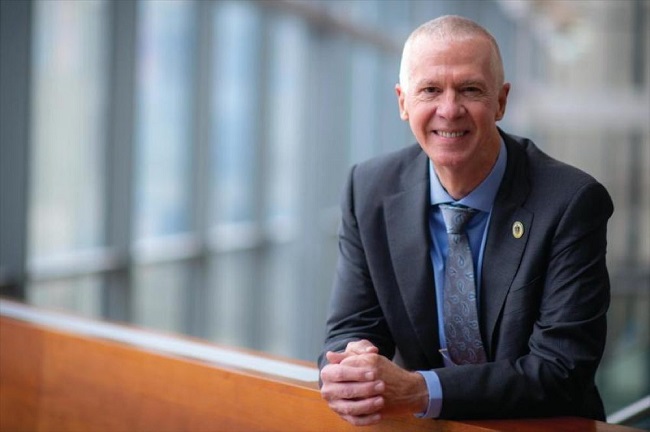
DARTMOUTH – In an agreement designed to promote educational, research and economic opportunities, the University of Massachusetts Dartmouth and the Portuguese Republic signed a memorandum of understanding, which aims to develop collaborations within disciplines, according to a statement from UMass.
The memorandum was signed Dec. 17 by UMass Dartmouth Chancellor Mark A. Fuller and Helena Margarida Moreira de Oliveira Vieira, director-general of maritime policy for Portugal. It prioritizes joint endeavors in coastal and ocean policy, sustainability, cultural activities, and research and development within the blue economy, according to the university.
“Our scholars and scientists are national leaders in fields crucial to marine health and conservation, including assessing environmental impacts and improving key technologies,” Fuller said. “It is critical we share our knowledge with our Portuguese partners, who are doing so much to promote sustainability and marine science.”
The memorandum will build on the maritime strengths of Portugal and the research expertise of UMass Dartmouth through the School for Marine Science & Technology and the Marine and UnderSea Technology research program.
UMass Dartmouth is currently collaborating with industry, military and government partners on high-impact projects such as environmental impacts of offshore wind farms, developing autonomous underwater vehicles and machine learning for the U.S. Navy, as well as studying the breakdown of microplastics in oceans.
The memorandum also calls for the exchange of scientists, researchers, technical experts, scholars and students from UMass Dartmouth and Portuguese higher education institutions, among other collaborations.
While on campus, the Portuguese delegation visited the Ferreira-Mendes Portuguese-American Archives, which has the world’s most extensive collection of genealogical records, newspapers, books, recordings, photographs, scrapbooks, business records and correspondence that document social history, illustrating the collective experience of immigration, settlement and life in the U.S. for Portuguese Americans.
The delegation also toured the university’s School for Marine Science & Technology facilities in New Bedford.
Susan Shalhoub is a PBN contributing writer.












